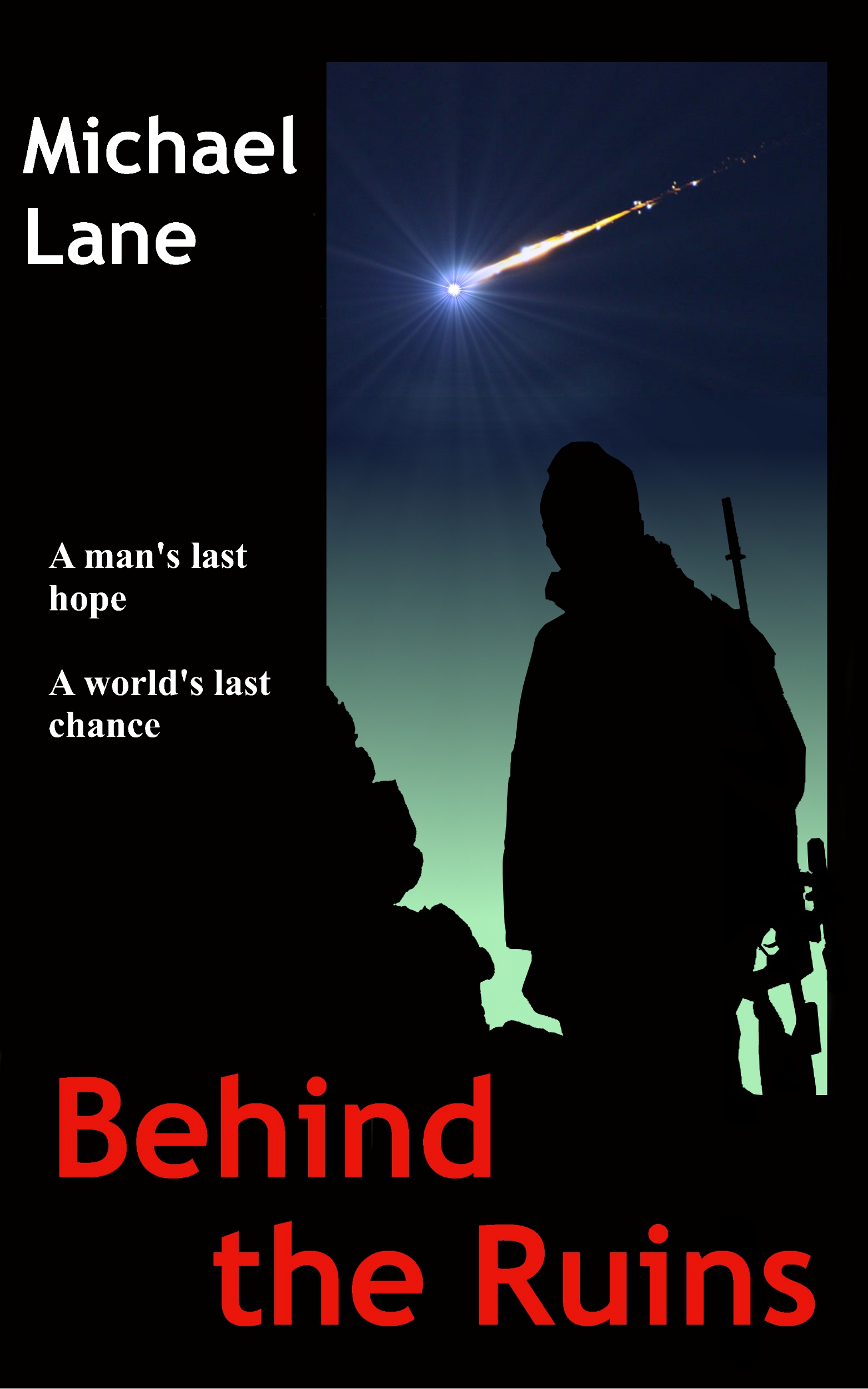Michael: I wish I could remember who said this originally, but the gist was that writers write fiction to tell the truth and write nonfiction to lie. Which sounds mean and horrible but I think the underlying concept is that “great truths” – emotional, philosophic or cultural – are best tackled in fiction, where you can set up your morality play to best illustrate your point. In a weird way working as a journalist returned my interest to writing fiction, since I can examine concepts in fiction that can’t be touched in print or broadcast media. I got to do that in Behind the Ruins and really enjoyed it.
Jae: What are some of your favorite books?
Michael: Mervyn Peake’s Gormenghast novels, Glen Cook’s Black Company books, anything by Gene Wolfe, Leviathan by Paul Auster, Survivor by Chuck Palahniuk, McCarthy’s Blood Meridian, the first Gunslinger volume by Stephen King.
Jae: What's your career background, and do any of your work experiences show up in your writing?
Michael: I am a print journalist by training and work experience, which affects my grammar and word choice while writing. I tend to stay as lean and minimalistic as I can, avoid adverbs and minimize extraneous description or dialogue. Shorter is better.
Jae: Is Behind the Ruins your first novel?
Michael: It’s the first I finished. I can’t count the false starts, but that’s the norm for writers I’ve talked to. Making the mental commitment to finish is the tricky part. Writing is cake in comparison.
Jae: What's Behind the Ruins about?
Michael: It’s about a man trying to recover some sense of his humanity in an extremely violent post-apocalyptic world. I wanted to explore how violence as a tool can ensure your survival while emotionally and psychologically killing you. That the learning process is also a violent one hopefully makes people ask some more involved questions.
Jae: What setting did you choose for the story, and why?
Michael: It’s post-apocalyptic only because the desperate struggle for survival is integral to who the main character had become. It could have been set in the old west or the Crusades, I suppose, but that brings in some cultural, historical and genre baggage I wanted to avoid.
Jae: Do you think in concepts, pictures or words? If words, are they spoken or written?
Michael: When writing I think in both pictures and words. I tend to read (and write) in a spoken meter and try to “hear” the language. My early thinking on a story is almost pure imagery and visualization.
Jae: Tell me about your writing process.
Michael: I usually make a set of rough notes that are largely limited to character names and notes, a few brief notes on major locations and environments and that’s it. Then I write. I find that if I do a detailed outline I’ve told myself the story and won’t want to do it again in the initial draft. It sucks a lot of the life out for me. Behind the Ruins had a one-page character listing and a second sheet of location and technology notes. Those grew a bit over the course of writing the novel. When I’m writing, I religiously do 3,000 words a day.
Jae: How is the fiction process different from journalism?
Michael: It’s less deadline oriented, but it’s certainly similar in many ways. You have to get work done, get it done on a schedule, and it has to be clean, so speed and accuracy are both shared goals. The difference is the freedom to make your own story and tell the truth as you see it, rather than as four cited authorities see it.
Jae: What were your worst moments writing Behind the Ruins?
Michael: The first draft edit, which is the hairy one with major revisions, lots of language alteration and hair-pulling.
Jae: What were your best moments?
Michael: Finishing the first draft edit and realizing there was a good book in there despite all I’d done to it.
Jae: What important lessons have you learned as a writer that you'd like to pass on to others?
Michael: Set a daily word-count and meet it, even if you’re writing absolute garbage that day. If you do that, you’ll finish, and once it’s done there’s no passage so bad you can’t go back and fix it. Keep moving forward.
Jae: What's next for you? Is there another novel in the works?
Michael: There are. I have two started. One is a fantasy novel in its earliest stages, and likely the first of two or three in a series, while the other is a stand-alone thriller that’s about eighty pages in at the moment. I do want to revisit the world of Behind the Ruins, as well.


No comments:
Post a Comment